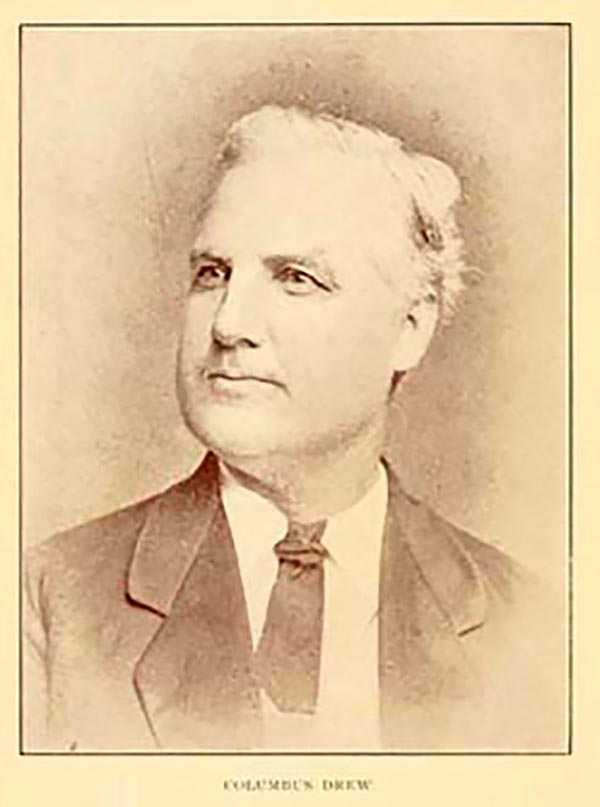Columbus Drew (1820—1891) was born in Washington D.C to parents who had recently immigrated from England. A journalist as a young man, he was persuaded in 1855 to go to the slowly growing State of Florida and establish a newspaper at Jacksonville.
From that time on he was loyal to Florida through the hard days of the Confederacy and Reconstruction and before and after. Drew was a versatile and talented poet. Some of his verse covered the history of his State and others were charming personal poems. His best verse was the poems he wrote during the war to bolster the morale of the State. These celebrated the exploits of Col. John Jackson Dickison, “the Francis Marion of Florida.” (See J.J. Dickison, Military History of Florida, in Clement A. Evans, Confederate Military History, vol. XI.)
The Yankees occupied the seaports like Jacksonville and St. Augustine early on. But whenever they ventured from the ports on one of their normal looting and burning raids on civilians, Dickison, with a small highly mobile band of men whipped them and they went scurrying back to their forts. And in a feat rare in history for a land force, he captured a Yankee warship.
Among many Drew war poems are: “All Quiet on the Olustee To-Night,” “The Grey-Clad Partisan,” “Camp Song of the St. Augustine Confederates,” and “Song of the Spinning Wheel.”
After “Reconstruction” the poet Drew celebrated the late 19th century North/South Reconciliation, which is now held in such contempt by our Republican and Democrat Congresspersons. In “Welcome” he invited Northern people to come and be welcome. Another poem advocated American attention to the Cuban struggle for freedom.
Drew’s verse has not been fully collected it appears. In 1910 his daughter published in Jacksonville Columbus Drew: Something of His Life and Ancestry and Some of His Literary Work. This book includes some of his verse and of his historical writings on Florida history, often experienced first-hand.
At last reports, Drew’s house was still standing in Jacksonville and designated to be a historic site. Let’s hope the Woke jihadists haven’t noted that yet.







When I think of the North/South Reconciliation, I think of Trump’s story about The Snake. Yankee godless marxism can never be reconciled with.
Al Wilson’s 1968 Top 40 hit, “The Snake”.
Good tune, same story.